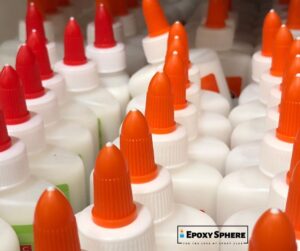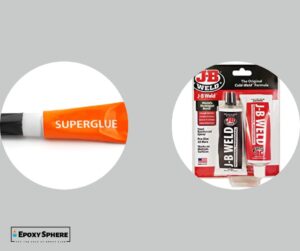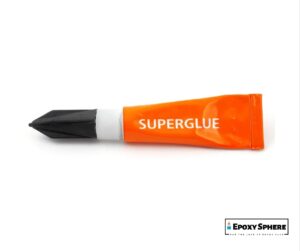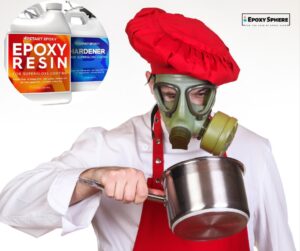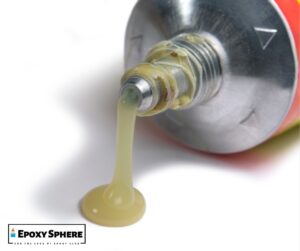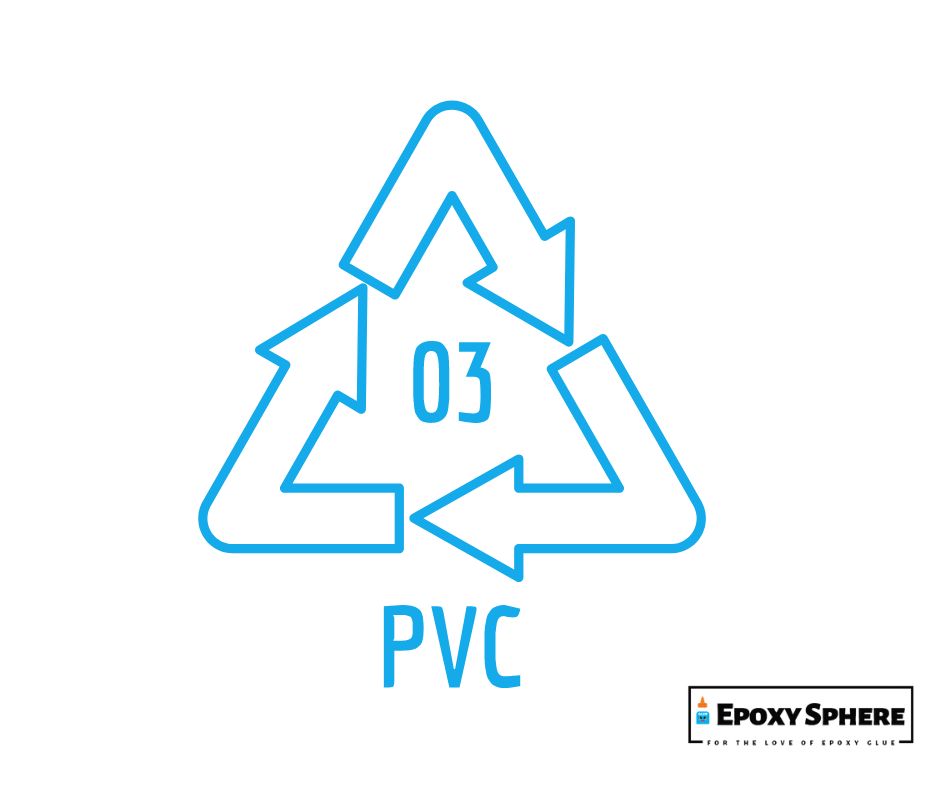
The short answer to this question is, no, it doesn’t. The long answer involves an explanation of why epoxy doesn’t stick to PVC and the chemical reactions that occur when you apply epoxy to PVC, making it difficult. Also, you would want to know what materials epoxy sticks with.
What Is PVC?
PVC is a word that means polyvinyl chloride. It is the third most produced polymer in the world with 40 million tons of it made every year.
They are made in two main forms. There’s a rigid PVC that is used for making pipes. They are also flexible like in electrical cables and faux leather. It began its life in 1872 when it was synthesized by German chemist Eugen Baumann.
What Is Epoxy Resin?
Epoxy Resins are polymers or pre-polymers that contain epoxide groups. Most epoxies comes in pairs; the resin and a catalyst or co-reactants complete the process of adhesion.
Epoxy is used for different purposes as industrial coating, electrical insulation, and adhesives of structural sizes. Because of its high shear strength. We even used it in aircraft component manufacture.

Why Does Epoxy Not Stick To PVC?
Though epoxy is used in construction materials like cables, and pipes, it doesn’t stick to PVC as well as you’d expect. Before using it in any project that involves you, you should consider certain factors.
- PVCs contain chlorine atoms in their minutest structure. This affects the ability of epoxies to bond with PVC. For epoxies to bond properly with PVC, epoxide has to come together with another substance called phthalates or amine. This substance causes the epoxy to harden and bond. The chlorine atoms in PVCs, however, cause this process to fail.
- To get epoxy to bond or stick to PVC, you have to prevent the chlorine atoms from mixing with and disrupting the process that causes the epoxy to bond with the surface of the PVC.
- The only way to prevent chlorine atoms from seeping up to the epoxy is by painting the PVC. Or you could spray some other type of primer on the surface of the PVC after which you can then apply your epoxy.
Materials That Epoxy Doesn’t Stick To
Before you apply epoxy to any plastic material, be sure that it is one that epoxy will stick to. The truth is epoxy is a very strong adhesive and does stick to plastics. But there are exceptions. I mention a few of them below:
- Wax paper
- Sheathing tape
- Silicone
- Vinyl
- Rubber
- Plastic bags
- Polyethylene plastics
- Many types of plastic containers
Depending on the reason for your query, there are many other materials out there that epoxy would not stick to. The benefit of having this information is that sometimes you don’t want the epoxy to stick.
For example, if you need to use a large amount of epoxy for your project, you will need a container that doesn’t allow the epoxy to stick to mix it in. This is the case if your project involves coating metal or other materials with epoxy.
You need to know if the material you want to coat needs the first film of primer to allow the epoxy to stick to it.
Epoxy resin doesn’t mix with wax paper. So if you want to mix your epoxy for use in bonding other materials like some plastics, you can mix your resin on the wax paper.
What Does Epoxy Resin Stick To?
It would seem that epoxy resin doesn’t stick to a lot of materials but this is not so. Epoxy does stick to a lot of other materials. And there are other things you can use epoxy resin for other than using it as adhesives. Here are the various materials that epoxy sticks to:
You can use epoxy on metal
Not many people know you could actually use epoxy resin on metal. It can be an alternative to welding metal. Loctite epoxy is used to secure screws and bolts if you don’t want them to pull off. It doesn’t conduct electricity, which is why it is a great alternative.
You can use epoxy for woodwork
Certain brands of epoxy are the most ideal for woodwork. You just have to check the label on the brand to tell if it would be a good fit. Loctite Epoxy Gel is a favorite in this regard. It doesn’t drip while applying because of its high viscosity. It is water resistant too.
You can use epoxy on cement
Did you know you can use certain epoxies for cement in the home? You can use it to mend your house’s broken porch steps, broken vases, and a host of other applications on cement. In this case, you need an epoxy resin that’s especially formulated for this work. Epoxies are resistant to water, making them ideal for concrete surfaces anywhere. You can even use epoxies to mend broken tiles in your bathroom or kitchen.
You can use epoxy resin on plastics
You can have an epoxy resin at home for when your pipes bursts; in the bathroom, or kitchen. Specially formulated epoxies are available for use on almost all household plastics from chairs to some containers. It can be used on plastic car parts as well.
How To Remove Epoxy
Sometimes you want to get excess epoxy off the surface of materials, or you want to separate two materials you previously bonded. Here’s how to remove epoxy:
- Use paint thinner or denatured alcohol to remove epoxy. In a well-ventilated place, dip a cloth in the thinner and rub on the epoxy and it would slowly dissolve it
- If epoxy gets on your skin, you can get it off by using a white vinegar solution to wipe it off.
Always have a solution of thinner near you when you work with epoxies. This way you avoid having to work at removing hardened epoxy. Also, you’ll be able to quickly get the excess off your hands. It is recommended that you wear gloves when using chemicals of this nature, and to work with them in a ventilated place in case you are allergic to chemicals.
Final Thoughts
The applications of epoxy resin are countless both in the home and outdoors. Even at sea, specially formulated epoxy resins with stronger bonds are used to mend holes in boats. They can be used underwater because of their viscosity and because they’re resistant to water.
In this article, you have learned that epoxy doesn’t stick to PVC on account of the presence of chlorine atoms that weakens the binding process. You have also learned how to get around this problem by applying primers to coat the surface of the PVC.

Hi, This is John Davis. After years of working in the construction industry, I decided to create a website that would provide people with information about glue and its exceptional uses. I hope You find it useful

